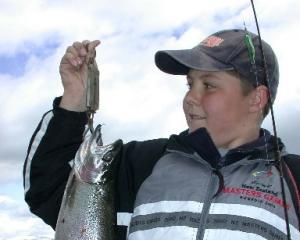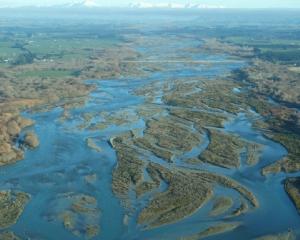Otago Fish and Game Council has told the chairman of its national council it has no confidence in its chief executive Bryce Johnson.
In a letter obtained through an Official Information Act request, Otago council chairman John Barlow says the Otago council is dissatisfied with the style, focus and delivery of national advocacy which is "failing to make tangible gains and has been damaging to external relationships".
Last week, the Central South Island council had passed a motion of no confidence in Mr Johnson.
The Otago council discussed the issue in the public-excluded section of its monthly meeting in Cromwell.
As a result, a letter signed by Mr Barlow, was sent to the national council's chairman Rob Roney, which said: "Under the circumstances, the Otago council considered it necessary to strongly communicate its disillusionment with the New Zealand council's (NZC) chief executive's national advocacy by resolving: That this council has no confidence in the NZC's chief executive".
There was a high level of frustration as a result of an inability to discuss those issues at a national governors' forum, so the matter had come to its monthly meeting, Mr Barlow said in the letter.
Areas of concern included a water campaign which failed to proceed in 2006, a lack of agreement over themes for pre-election advocacy, and the "divisive and costly" judicial review on high country pastoral leases taken without consultation with regional fish and game councils.
Otago chief executive Niall Watson said the council discussion relating to the correspondence was taken in committee to "allow a free and frank exchange on the topic" and, as a result, the minutes should not be released.
"As this is effectively an internal matter between Fish and Game councils, Otago Fish and Game Council is not intending to comment further on it at this stage."
Mr Roney said in a letter in reply to Mr Barlow that the chief executive had the full confidence of the NZC.
"I would make no distinction between the performance of the NZC CEO and that of the NZC itself.
"As councillors, we are accountable for all decisions taken by the council and actions by staff taken on our behalf."
He declined to allow discussion at the governors' forum as he saw it as a "potential character assassination" on Mr Johnson in presence of 35 councillors, only 12 of whom employed him.
"Despite this, I can assure you that the NZC is prepared to address real and factual issues involving our staff . . . if raised in acceptable and reasonable manner."
As for the areas of concern, Mr Roney asked whether the New Zealand council got on with advocacy as it did in the declaratory judgement, exposing itself to criticism of not consulting, or alternatively consulted widely and achieved "invariably ineffective regional consensus" before proceeding.
Different councils seemed to have differing approaches.
Under the structure of the organisation, regional fish and game councils were independent organisations and had no statutory power over each other.




